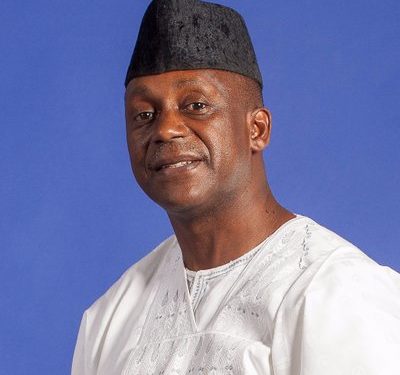Head of the 2023 General Elections, Sierra Leone enacted several laws in the name of reforming its electoral landscape.
Some of the changes were progressive and some controversial, among them the reintroduction of the Proportional Representation system.
As the outcome of the elections has shown, both sides of the debate have something to celebrate. But it has occasioned a debate about its overall benefits and costs on the country’s democracy.
For the first time, Sierra Leone has its largest female representation in Parliament – 41 out of 135 elected MPs, representing 27 percent, according to an analysis by the Institute for Governance Reform (IGR).
This number is still short of the 30 percent mark envisaged with the enactment of the landmark Gender Equality and Women’s Empowerment Act of 2022, but it is still a major progress, say rights campaigners.
On the downside, the dynamics in the parliament has changed in a way that has left some people cringing. All the smaller parties and independent candidates who contested, lost their seats.
This means that the Sixth Parliament of Sierra Leone will be composed of only two parties – Sierra Leone People’s Party (SLPP) and the All People’s Congress (APC) – the traditional parties seen by many Sierra Leoneans as responsible for the country’s underdevelopment, having dominated its politics since independence.
The two parties are blamed for promoting the ethno-regional based politics that is at the core of perennial division and violence characterizing elections in the country.
Thanks to the PR system, some of the most outspoken and independent minds in the fifth parliament have been rendered silent. Among the biggest losers is Dr Kandeh Yumkella, considered by many as the most centrist lawmaker in the House.
Yumkella’s situation is ironic. His party, the National Grand Coalition (NGC), appears to have participated willingly in the planning of its own demise with the formation of the so-called Progressive Alliance with the SLPP.
The establishment of the NGC raised hope among many Sierra Leoneans for a much needed third political force in the country.
Yumkella emerged third in the 2018 presidential election with 6.8 percent share of the votes, with his party winning four seats. Together with the Coalition for Change Party (C4C), which had eight seats, as well as the three Independent lawmakers, they became the voice of conscience in the the House, even though they occasionally attracted criticism for playing into the hands of the two major parties.
Both NGC and C4C started displaying signs of irrelevance long before these elections.
Up to now the details of the SLPP-NGC Alliance are unknown to the general public. But whatever they are, why Yumkella would abandon his party’s direction to join an alliance with the party he had deserted remains one of the mysteries in the current political discourse in Sierra Leone.
As the answer for that is sought, the immediate focus for many is on the effect of the PR system in the country’s democracy.
To its defense, NGC didn’t support the PR system. In fact, it was among the few parties that raised concerns about it, notably warning against its effect on smaller parties and potential risk to stability.
While he didn’t openly support the PR system, critics say Yumkella, as chairperson of a parliamentary committee responsible for scrutinising laws, turned a blind eye as the piece of legislation cruised through. Also, they say, with the Alliance he implicitly subscribed to all of SLPP’s policies.
But even Yumkella himself appears surprised with the outcome.
“The final results released by the ECSL show that the PR threshold pose significant limitations on the political opportunities available to smaller parties,” he lamented in one of a series of tweets following announcement of the results by the ECSL.
“The Progressive Alliance remains steadfast in our commitment to advancing the vision of Compassionate Inclusive Governance,” he added.
In simple term, under the PR system, voters cast their ballots for political parties or independent candidates, rather than for individual candidates. The parties and candidates then receive a share of the seats in parliament based on the proportion of the vote they receive.
Proponents of this system say it guarantees inclusiveness and room for smaller parties to participate in the democratic process. It was also sold to Sierra Leoneans as the antidote to the divisive regional politics.
The PR system was also seen as a way to increase female representation in Parliament which, at 12 percent, was one of the lowest on the continent.
But even at that time, the potential dangers of the PR system was seen by some people. Among the concerns was the 11.9 percent votes threshold set for political parties to be eligible for seats. Gender activists also raised concerns about the free hands political parties had to decide on selection, which they said reduced opportunities for female contestants.
Sierra Leone had used the PR system in two previous elections – in 1996 and in 2002. Those opposed to its reintroduction said at the time it was much needed, with the country just emerging from civil war, without the proper legal framework to hold free and fair elections under the prevailing first-past-the post system.
The APC was the most vocal against the planned reintroduction of the PR system, citing mainly the timing, coming less than a year before elections.
Joseph Fitzgerald Kamara, former Attorney General and Minister of Justice under the APC-led administration of Ernest Bai Koroma (2007 to 2018), led the party’s unsuccessful Supreme Court bid against the move.
In response to the outcome of the elections, Kamara described the PR system as a hoax that was tied in a “political conspiracy” against participatory democracy.
“Now we have only two parties, the rest is shoved off the cliff,” he wrote in a tweet, adding: “In short term, posterity has judged us right.”






















